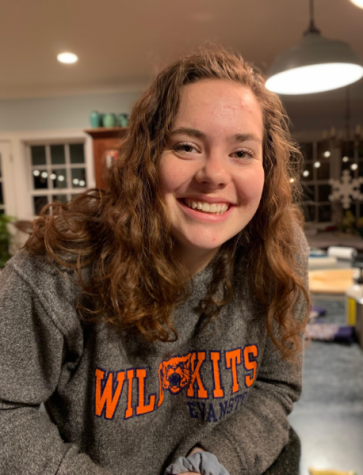Good, bad of body positivity in music
November 8, 2019
Throughout my middle school years, Meghan Trainor was the face of body positivity in music. When “All About That Bass” dropped in 2014, all of my friends, my mom and my teachers could sing the lyrics back to you within a week of its release. It was just that catchy.
My mom came home after work one day and made me sit down and watch the music video on her computer. She commented on the diversity of body types, the lyrics and the overall happy vibe of the video. Trainor dances around a pastel set in fun, colorful clothes with models of varying body types.
“All About That Bass” spent eight consecutive weeks at the Billboard #1 spot. Not to give you a 2014 music history lesson, but the song was a big deal: playing at every Bar and Bat Mitzvah, middle school sleepover and on supermarket intercoms for months. With lyrics like “every inch of you is perfect from the bottom to the top,” it’s clear the song is meant to uplift people of all body sizes.
At the ripe old age of 12 years old, I hadn’t ever had any significant body issues, other than the standard pubescent middle school insecurity, but I found myself listening to the song frequently. Maybe it was the catchy tune, or the candidness of the lyrics, but I found a type of acceptance within that song. But here’s the thing: Meghan Trainor didn’t actually revolutionize body-positive music.
Meghan Trainor has since opened up many times in interviews or on social media about her thoughts on her own body and what it’s like being larger than a size two while working in the music industry.
“I’m definitely bigger than a Rihanna. Pop stars nowadays are all perfect Barbie-doll bodies, and they talk about how they keep their bodies up with hard work, so in my eyes, it’s good to have a regular, average body type in the charts,” Trainor said in one MTV interview.
Here is where the problems arise. It’s uncommon for popular artists to praise body diversity, but the extent of their support tends to be all-encompassing. All bodies are good, all bodies deserve love. With Trainor, the world saw a different rhetoric. Her message of acceptance and support didn’t extend to people larger than herself, and has shut down skinnier body types.
The conversation around body positivity in the past has been binary. Focusing mainly on size or weight, leaves out all the other ways that bodies can look different. Along with a more inclusive point of view comes a more inclusive way to talk about bodies. The terms that I’ve seen frequently used are “fat,” “skinny,” ”thick” or “thin”– many words to describe a single idea– but bodies come in all sizes, including those that don’t fit into those terms.
“Being self-conscious of your body can happen to anyone. Meghan Trainor made it seem like skinny people don’t have the right to be self conscious and seemed to shame them a little,” senior Grace Trinley said.
That is not to say that Meghan Trainor has done nothing for the body positivity movement.. A major popular artist singing about loving yourself at any size is a nice message to have, especially within the walls of a middle school (where maybe we needed it the most). Yet, celebrities like Trainor have left some listeners wondering whether all body types are really invited to participate in this discussion.
Pop-singer and flutist Lizzo released her debut album “Cuz I Love You” in April 2019 and has since been launched into the spotlight. However, it’s not just her music that makes people pay attention; Lizzo’s message has been to celebrate different body types, made clear from songs like “Juice,” or “Fitness.”
“Lizzo made it a point to prove that you should be confident with what you look like no matter what shape or size,” Trinley said.
The differences between the two artists aren’t just in their advocacy, but in their actual appearances. While Trainor is self-described as “curvy,” Lizzo embraces the title fat. “I am fat, I am Beautiful,” Lizzo says.
Lizzo’s mindset has been considered ground-breaking in the music industry, as many of her songs come from a self-love perspective. She talks about learning to love yourself in a world that wants to put people down.
“I say I love myself, and they’re like, ‘Oh my gosh, she’s so brave. She’s so political.’ For what? … Even when body positivity is over, it’s not like I’m going to be a thin white woman. I’m going to be black and fat,” Lizzo says in an interview with The Cut.“That’s just hopping on a trend and expecting people to blindly love themselves. That’s fake love. I’m trying to figure out how to actually live it.”
Lizzo’s messages succeed where Meghan Trainor’s failed. Lizzo’s words spread beyond people who look exactly like her, though she stresses that they’re definitely a target audience. As mentioned, she says that the act of self-love isn’t something that is “brave” or “political” but a necessity for people to live in the bodies that they’ve got.
“You can tell that she actually loves her body and the skin that she’s in- She wants people to actually love them for them and not because anybody else told them to.” Makayla Brown says.
For the young people of this generation, including my friends, my classmates and me, this means being able to redefine ourselves in terms outside of “skinny,” “fat,” “thick,” “thin.” Considering the innovation that has happened in the music world, taking it to heart can allow for a more inclusive world for everyone.








